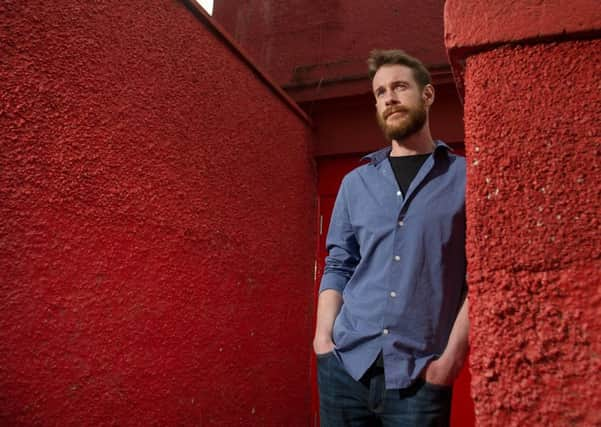Malachy Tallack on writing, travel and isolation


Towards the end of Malachy Tallack’s book 60 Degrees North, there’s a scene in which he is browsing in a village shop on a Norwegian island. A couple of customers are chatting to two of the staff, and even though he can’t understand a word of what they are saying, he knows it’s affectionate, and not just about buying and selling. “I wanted to be enclosed and included within that thing of which these people were a part,” he writes. “I wanted to belong, as they belonged, to something bigger than themselves.”
That, in essence, is what his book is about. Ostensibly, it’s a record of a journey that has taken the 34-year-old writer and musician, on successive years, from his home in Shetland along the eponymous line of latitude that passes through southern Greenland, northern Canada and Alaska, St Petersburg, Finland, Sweden and Norway. But the key is in the subtitle: “Around the world in search of home”. And home, he concludes, is somewhere very much like Fair Isle, where he lived for three years when he was still making some of those journeys. There, he knew, all the warmth and sense of community that he had just witnessed in that Norwegian village shop, was just waiting for him, 200 miles to the east across the North Sea, on the last stage of his wanderings round the northern world.
Advertisement
Hide AdAdvertisement
Hide AdLast month, when 60 Degrees North was published in a blaze of publicity (Book of the Week on Radio 4, Editor’s Choice in the Bookseller) and garlanded with critical praise by the likes of John Burnside, Robert Macfarlane and Will Self, he was asked the one question any well-travelled person always has to face: Where would you like to be right now, anywhere in the world? “Fair Isle,” Tallack replied. “Always.”
His search for home began in tragedy. He was born in England and grew up there until he was ten, when his parents separated and he followed his mother to Shetland. But that didn’t feel like home, so six years later he moved south again to live with his father, having been accepted to a performing arts school in south London. Just before term started, his father was killed in a car crash. Back he went to Shetland, grief shattering any sense of belonging anywhere, but also first putting into his mind the notion of travelling to as many other places as he could that were also – like Shetland – 60 degrees north.
I meet him in Glasgow, where he now lives. It’s his first extended interview about the book, and there’s a certain reserve about his answers. I don’t mean that he’s not pleasant, thoughtful, polite and intelligent, because he is. But left to himself, I suspect, he’d avoid the whole palaver of self-promotion. So he doesn’t bother to mention, for example, that he’s a rather excellent singer-songwriter (check him out on YouTube) whose band has supported Runrig and King Creosote, or that he has four albums and an EP to his name. He doesn’t seem to do small talk, though he’s good on the big stuff.
“Travel,” he says, “is always as much about coming back as it is about going away.” But when he did come back from his own travels, convinced that he was going to settle down for good in Shetland like his younger brother Rory and his mother, he found himself unable to do so. Shocked at his own restlessness, he moved to Glasgow.
What happened? “I don’t want to talk too much about it, but an intense and sudden bout of depression came on about the time I’d finished these journeys, though I don’t really know how related these things are.
“I moved to Glasgow about 18 months ago, but I’ll always think of myself as a Shetlander. I don’t care what anyone else says about it, that’s who I am. And in Glasgow I’m much freer to write about Shetland now that I’m not there. That’s something a lot of writers from small communities often feel.
“I feel contentment living in Glasgow, despite the fact that it doesn’t feel like home. Because I’m almost living out of a suitcase at my flat in Shawlands, there’s a sense of freedom: I could get up and go at any time. That’s not how I want to feel, it’s just how I am, how I’ve ended up being. I wish it wasn’t that, and that I could feel content and settle down, and I hope I can feel that way in the future.”
Advertisement
Hide Ad